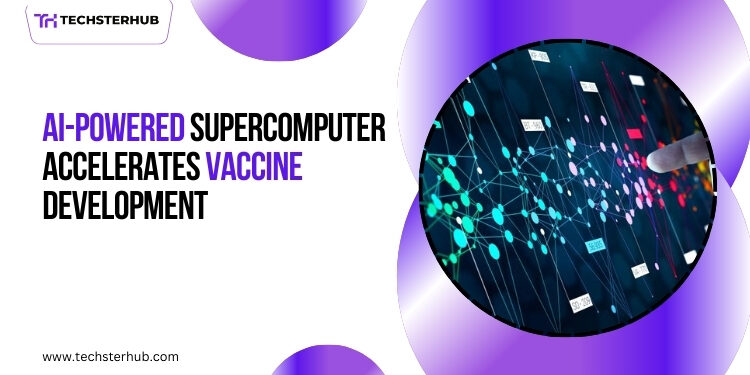A £225m computer is developing new medicines and vaccines through artificial intelligence (AI).
When it is up and running this summer, the Isambard-AI computer in Bristol will be the most powerful supercomputer in the UK.
The prime minister Sir Keir Starmer announced last week that the UK is going to “launch AI” across the whole country, aimed at encouraging growth.
According to Simon McIntosh-Smith, professor of high-performance computing at Bristol University, Isambard-AI was proof that the UK ‘really can be on a level with the rest of the world’.
‘As I told BBC Radio Bristol, we actually have something like half the system set up already, we already have people using it doing stuff like looking for new drugs and new vaccines to treat people.
He went on to say the group is leveraging the computer to create Alzheimer’s and other dementia vaccines, and for heart disease, emphysema and cancers.
It’s even being deployed by one team to dramatically increase the detection of a kind of skin cancer called melanoma across a vast spectrum of skin colours.
‘It does a lot of the muft work, a lot of the things that would just be beyond human beings because they’re just so powerful in terms of their minds and computing abilities,’ he said.
But what about AI as the tool for new vaccines and drugs?
According to Prof McKintosh-Smith, AI models now ‘simulated how drugs actually work inside the body, from a molecular level all the way down to atoms and molecules.
‘A lot of drugs involve a protein or two in the body, and turning them off or otherwise modulating their behaviour,’ he said.
Before, scientists would have to figure out by themselves what therapies might do to these proteins – “a lot of experience and wisdom”, but also “informed guesswork”.
‘You only get so many [predictions] you can make’ Prof McKintosh-Smith went on, ‘and making it takes time and it costs money and stuff like that, so the extent of that kind of physical experimentation is quite limited.
But all this, he explained, is transformed by a supercomputer such as Isambard AI – by a machine capable of navigating databases of millions of possible medications that can be tried in the first few minutes online, not in the lab.
‘Where artificial intelligence comes in, is rather than try all combinations of things, it’s going to try a whole bunch of random possibilities, see which are most promising, and then pick those.
“AI is really helpful to zoom in and reduce hot spots quickly, and there’s lots of variability in the way that people are applying that,” he said.
Prof McKintosh-Smith chimed in: ‘We could be saving millions of lives with some of these things that we’re talking about here and that is something I think is absolutely amazing – it’s brilliant that we can be doing it here in Bristol.
‘Potentially world-changing’
The prime minister slammed AI in a speech earlier this week as having “great promise” for resuscitating UK public services. He gave the as examples of using the technology to check the roads and detect potholes, or catch illnesses such as cancer earlier.
Asked why so much money is being spent on Isambard-AI, Prof McIntosh-Smith said the “return on investment could be epochal”.
Likening the research on AI to the opening of the internet or the mobile phone, Prof McIntosh-Smith told me: One of the advantages of things such as Isambard-AI being a government programme is that all that stuff gets done in the public [interest], it’s by academics and that stuff is so much more transparent than it would be if you were doing it in a company.
When it is fully up and running, the Isambard-AI, hosted at the National Composites Centre in Emersons Green, will be one of the “top 10 fastest” supercomputers in the world.
We have been here before, no one else has.’ Prof McIntosh-Smith.
Supercomputers consume a huge energy load, and AI, in general, has increased so fast that energy use has become very worrying.
And Isambard-AI is no exception, though it was created to be as efficient as possible.
But there might be an unintended upside to it, Prof McIntosh-Smith told the BBC: the waste energy it generates evaporates as hot water.
“We’re just kind of playing around with ways to use that to heat up the local houses and businesses,” Prof McIntosh-Smith said.
‘And so, if someday you live next to Isambard, we could possibly heat your house using our waste energy.











